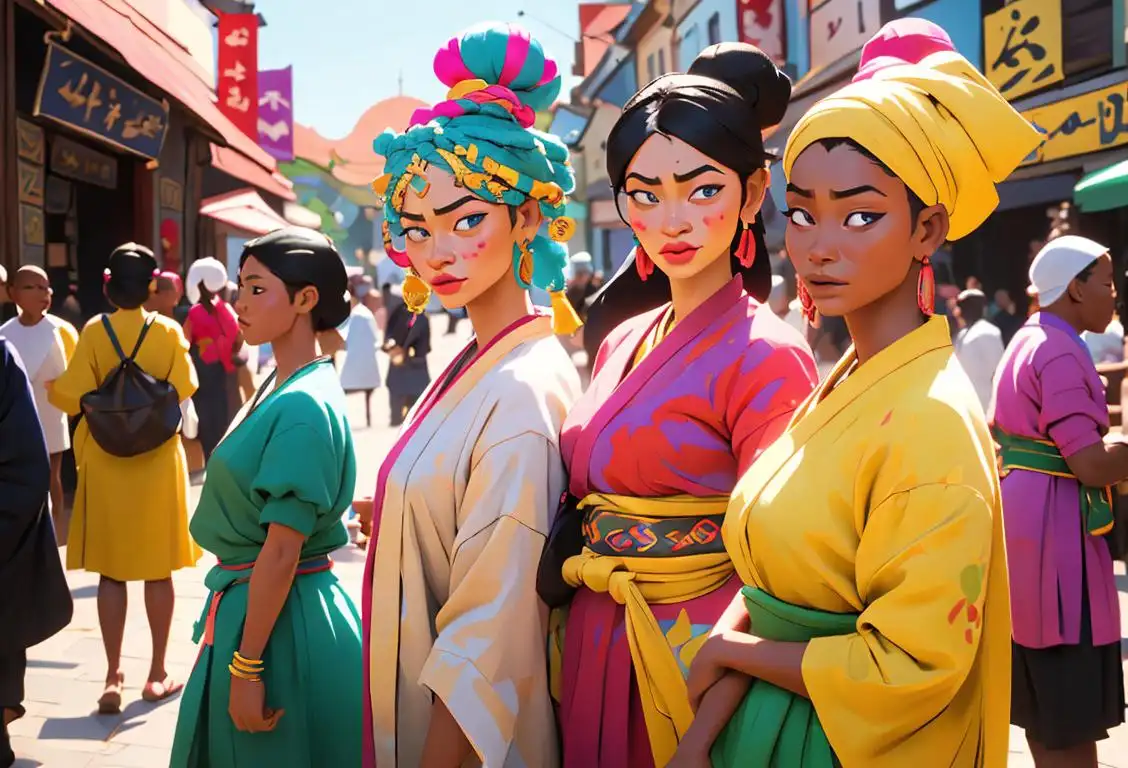National Cultural Appropriation Day

Hey there! Are you ready to dive into the fascinating world of National Cultural Appropriation Day? Well, buckle up and get ready for a whirlwind of exploration that will keep you entertained and informed!
When is Cultural Appropriation Day?
It's national cultural appropriation day on the 19th November.
The Origins of National Cultural Appropriation Day
So, you might be wondering, how did this unique day come into existence? While there isn't an official historical record on the internet for National Cultural Appropriation Day, it has become a topic of discussion in recent years.
It aims to raise awareness about the importance of respecting and appreciating different cultures without appropriating them. This day reminds us to celebrate diversity and embrace cultural exchange in a responsible and mindful manner.
Exploring the Internet's Take on National Cultural Appropriation Day
With 140 online mentions, it's clear that National Cultural Appropriation Day sparks discussions and debates on the internet. It encourages individuals to learn about cultural heritage and challenges the ways in which cultural elements are sometimes used without permission or understanding.
On November 19, 2016, this day garnered the most online buzz, showcasing just how much attention and consideration this topic receives.
Did You Know?
Fun Fact: Cultural appreciation isn't limited to humans alone. Did you know that some animals have been observed adopting behaviors and practices from other species? Talk about cross-species cultural exchange!
History behind the term 'Cultural Appropriation'
1970
Emergence of the term
The term 'cultural appropriation' first emerged in the 1970s as a concept used within the field of sociology. It was initially used to describe the adoption of cultural elements by dominant groups from marginalized cultures. The idea was rooted in the recognition of power dynamics and the potential harm caused by cultural borrowing without proper understanding or respect.
1980
Critique and expansion
In the 1980s, the understanding of cultural appropriation expanded and became more widely discussed. Scholars and activists began to critique the concept, highlighting how cultural appropriation often reinforced inequalities and commodified marginalized cultures. The focus shifted towards examining the impact of cultural appropriation on minority communities and their cultural identities.
1990
Popularity of the term
By the 1990s, the term 'cultural appropriation' gained popularity among academics, activists, and artists. It became an important aspect of discussions surrounding cultural diversity, identity politics, and social justice. The increased visibility and recognition of cultural appropriation in mainstream media helped bring the issue into public consciousness.
2000
Social media and cultural appropriation
With the rise of social media platforms in the 2000s, the issue of cultural appropriation gained even more traction. Online communities provided a space for marginalized voices to share their experiences and call out instances of cultural appropriation. Hashtags such as #CulturalAppropriation and #MyCultureIsNotYourCostume helped raise awareness and sparked important conversations.
2010
Debates and nuances
In recent years, the concept of cultural appropriation has been the subject of ongoing debates. The discourse has become more nuanced, recognizing that cultural exchange and appreciation can exist alongside harmful appropriation. Many emphasize the importance of respectful engagement, learning, and giving credit to the source culture. These discussions have helped foster a better understanding of the complexities surrounding the term.
Did you know?
Cultural appreciation isn't limited to humans alone. Did you know that some animals have been observed adopting behaviors and practices from other species? Talk about cross-species cultural exchange!Tagged
awareness funFirst identified
7th February 2016Most mentioned on
19th November 2016Total mentions
140Other days
Nurses Day
Former Prisoner Of War Recognition Day
Press Day
Handloom Day
Heroes Day
Memorial Day
Dance Day
Bestfriends Day
Liberation Day
Love Your Pet Day









